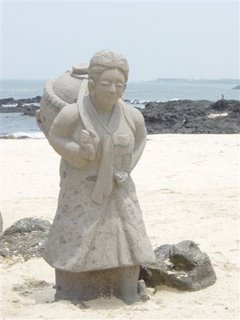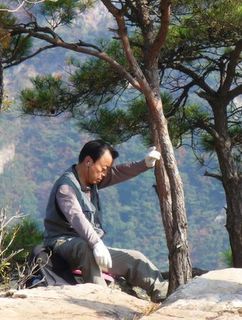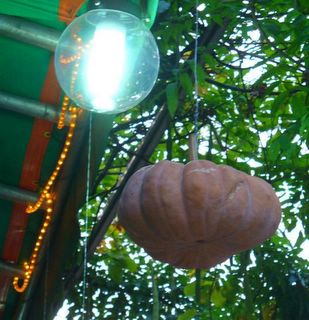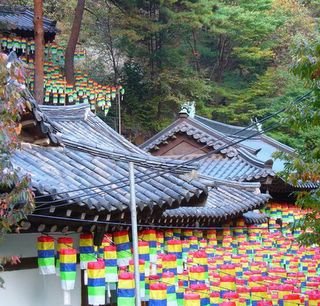Family Love

I am at a party, a tired wallflower contentedly observing the comings and goings of the vanity fair in front of me. My Pocahontas Hair friend walks over with a woman and says: “I’d like you to meet one of my best friends. We used to be neighbours in Notting Hill.” A short woman with stylish short hair smiles at me. “Mi-soo,” she says as she’s offering a manicured hand in a handshake. Her clothes are black from head to toe, sweater oversized and complicated; it leaves her shoulders bear drawing attention to a clunky necklace of gleaming onyx plates differently sized and shaped; her boots are fashionably up-to-the-minute – pointed, scrunched and ankle-high. Everything about her screams: a woman of the world, a successful artist, perhaps. She turns out to be just that, first a professional photographer in London, then a gourmet chef.
As Pocahontas leaves, she sits opposite me, sipping wine and smoking. Very European. We start talking. Her unmistakable Korean cadences blend well with most definite British influences that come through in her intonation and slightly high-pitched voice. She’s animated and attractive in that petit woman way. Her pixy good looks are played up by her boyish hair and funky style.
She’s a talker, all right: born on an island, the “Korean Hawaii,” she says. Seoul or rather Hongik University became her second home where her parents sent her to study art many years ago . Thirst for adventure and the big wide world cut her studies short and landed her in London where she lived for six years. She came back only three months ago. How very unconventional, I think.
She goes on: after 2 blissful months with her family on the island, ‘the longest vacation in her life,’ her Mother tells her that the island is too small for a woman of her sensibilities and sophistication. ‘You need to be in a big city,’ is her mother’s conclusion. Mi-soo agrees – she did start feeling a bit confined. Her family understand her; they don’t pressure her into marriage although she is 41. “Oh, 1966?”, I ask. She answers, ‘no, 1965,’ giving me her ‘western’ not Korean age that considers babies are one when they are born.
The day of leaving the island arrives. The family is lined up to say goodbye: her parents, rigid and emotionless although she reads sadness spelled in invisible ink across their faces; her younger brother, a respected medical doctor on the island with his pretty wife who holds their little son in her arms. Mi-soo hugs everyone. Father unexpectedly slips an envelope into her pocket, saying: “Here’s 5,000,000 won Mother and I have been saving for a long time.” She protests refusing the money, claiming it’s not necessary, she has savings to tie her over until she finds a job, deeply moved by her family’s love and care. This is what she came back for, now she knows. Her brother gives her a business card. Father says: “You need your money for food and a place to stay. Seoul is expensive. Our money is for your future. We are worried. It’s our gift to you.” Brother adds: “Dr. Park is a friend of mine. It’s been arranged already. He’ll give you a big discount. Call him on Monday.” She glances down at the card and see written in big gold letters: “Dr. In-seok Park” - Rhinoplasty Surgeon-Specialist.”
'How appalling,' I say while waiting for the punch-line, a climax worthy of Maupassant in which the heroine will tell the family off proving courage and uniqueness. “Why appalling?!", she says. "I’ll have surgery next week. . A bigger nose - and I'll be more attractive. I am 41, I told you, not much time left to find a husband and have a baby.My family... they love me, they want me to be happy.” I nod, mumbling an apology. Silence weaves itself around us. We sit framed in it: I the non-understanding foreigner embarassed by my quick assumptions; she - elegantly wrapped in her carefully planned outfit and hungrily dragging on the cigarette - the island woman who once lived in London.













